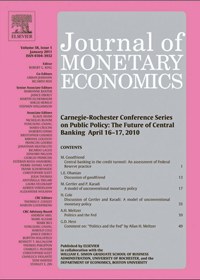

Sweder van Wijnbergen
Key publications

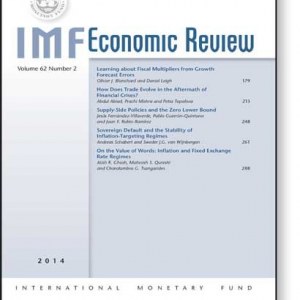
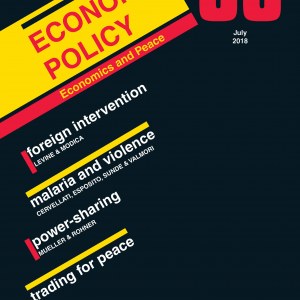
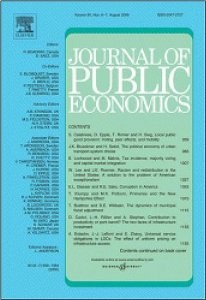
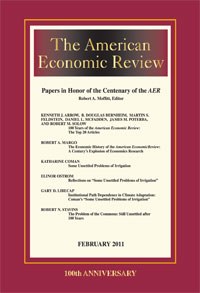
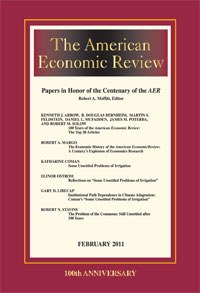
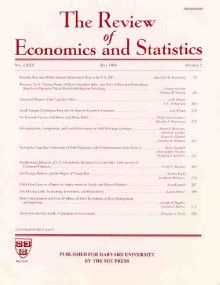
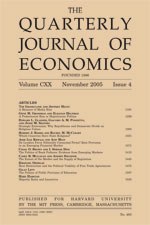
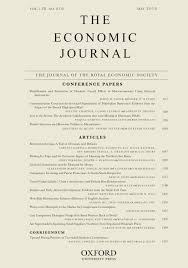
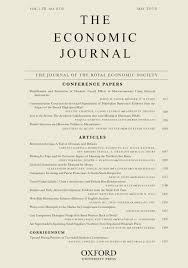
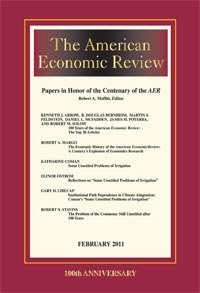
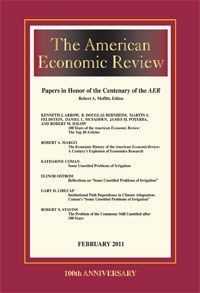
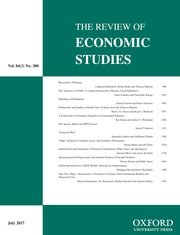
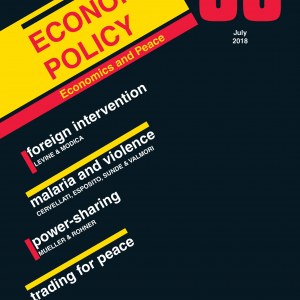
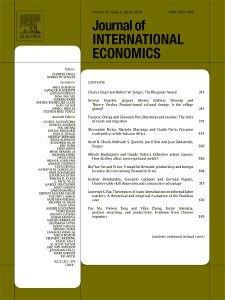
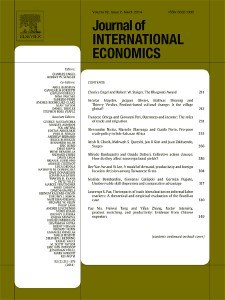
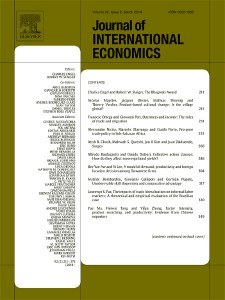
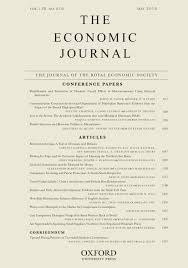
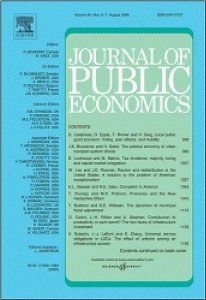
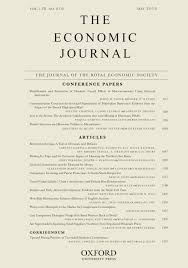
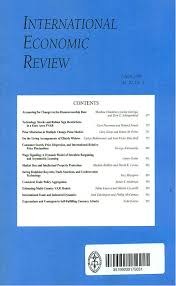
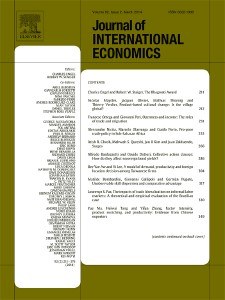
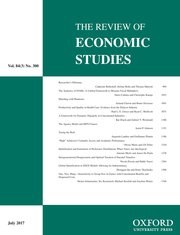
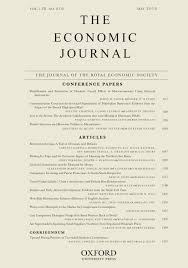
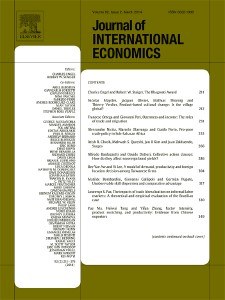
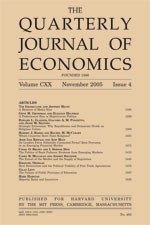
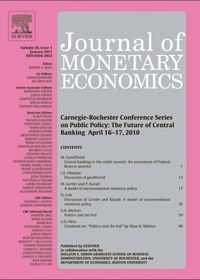
List of publications
\van Wijnbergen\, S.J.G. and \van der Kwaak\, C.G.F. (2025). Financial Fragility and the Fiscal Multiplier Journal of Money, Credit and Banking, :.
Olijslagers, S. and \van Wijnbergen\, S. (2024). Discounting the Future: On Climate Change, Ambiguity Aversion and Epstein–Zin Preferences Environmental and Resource Economics, 87(3):683--730.
Olijslagers, S., \van der Ploeg\, F. and \van Wijnbergen\, S. (2023). On Current and Future Carbon Prices in a Risky World Journal of Economic Dynamics and Control, 146:.
\van Wijnbergen\, S. (2022). Lockdowns as Options Economics Letters, 214:.
Chen, D. and \van Wijnbergen\, S.J.G. (2020). Redistributive consequences of abolishing uniform contribution policies in pension funds De Economist, 168(3):305–341.
Boermans, M. and \van Wijnbergen\, S. (2018). Contingent convertible bonds: Who invests in European CoCos? Applied Economics Letters, 25(4):234--238.
Homar, T. and \van Wijnbergen\, S.J.G. (2017). Bank recapitalization and economic recovery after financial crises Journal of Financial Intermediation, 32:16--28.
Zhao, L. and \van Wijnbergen\, S. (2017). Decision-making in incomplete markets with ambiguity—a case study of a gas field acquisition Quantitative Finance, 17(11):1759--1782.
\van der Kwaak\, C. and \van Wijnbergen\, S. (2017). Sovereign debt and bank fragility in Spain Review of World Economics, 153(3):511–543.
Kirchner, M. and \van Wijnbergen\, S. (2016). Fiscal deficits, financial fragility, and the effectiveness of government policies Journal of Monetary Economics, 80:51--68.
\van Wijnbergen\, S.J.G. and Willems, T. (2016). Learning dynamics and support for economic reforms: why good news can be bad World Bank Economic Review, 30(1):1--23.
\van Wijnbergen\, S. and Zhao, L. (2016). Real Options in Practice: Valuing Connected Gas Fields in the North Sea Journal of Derivatives, 23(4):54--73.
van Wijnbergen, S.J.G. and Zhao, L. (2016). A Real options perspective on Valuing Gas Fields Journal of Derivatives, :.
\van Wijnbergen\, S. and Willems, T. (2015). Optimal learning on climate change: why climate skeptics should reduce emissions Journal of Environmental Economics and Management, 70:17--33.
van der Kwaak, C.G.F. and van Wijnbergen, S.J.G. (2014). Financial fragility, sovereign default risk and the limits to commercial bank bail-outs Journal of Economic Dynamics and Control, 43:218--240.
Schabert, A. and \van Wijnbergen\, S.J.G. (2014). Sovereign default and the stability of inflation targeting regimes IMF Economic Review, 62(2):261--287.
Zaheer, S., Ongena, S. and \van Wijnbergen\, S.J.G. (2013). The transmission of monetary policy through conventional and Islamic banks International Journal of Central Banking, 9(4):175--224.
\van Wijnbergen\, S. and Willems, T. (2013). Imperfect information, lagged labour adjustment, and the Great Moderation Oxford Economic Papers, 65(2):219--239.
\van Wijnbergen\, S. and France, A. (2012). Assessing debt sustainability in a stochastic environment: 200 years of Dutch debt and deficit management De Economist, 160(3):219--236.
\van Wijnbergen\, S. and Budina, N. (2011). Fiscal sustainability, volatility and oil wealth: a stochastic analysis of fiscal spending rules Economics of Transition, 19(4):639--666.
Budina, N. and \van Wijnbergen\, S. (2009). Quantitative approaches to fiscal sustainability analysis: a case study of Turkey since the 2001 crisis World Bank Economic Review, 23(1):119--140.
\van Wijnbergen\, S. (2005). Discussion Economic Policy, 20(4):288--289.
\van Wijnbergen\, S.J.G. and Budina, N. (2001). Inflation Stabilization, Fiscal Deficits and Public Debt Management in Poland Journal of Comparative Economics, 29(2):293--309.
\van Wijnbergen\, S. and Estache, A. (1999). Evaluating the Minimum Asset Tax on Corporations: an Otion Pricing Approach Journal of Public Economics, 71(1):75--96.
\van Wijnbergen\, S.J.G. and Budina, N. (1997). Fiscal policies in Eastern Europe. Oxford Review of Economic Policy, 13(2):47--64.
\van Wijnbergen\, S. (1997). On the role of commercial banks in enterprise restructuring: the Polish example Journal of Comparative Economics, 21(1):44--64.
\van Wijnbergen\, S.J.G. and Erol, T. (1997). Real Exchange Rate Targeting and inflation in Turkey: an empirical analysis with policy credibility. World Development, 25:1717--1730.
Marcinèin, A. and \van Wijnbergen\, S. (1997). The impact of Czech privatization methods on enterprise performance incorporating initial selection-bias correction Economics of Transition, 5(2):289--304.
\van Wijnbergen\, S.J.G. (1995). Agriculture in the Mexico-US free trade agreement: Transition problems in economic reform American Economic Review, 85(4):738--754.
Doyle, C. and \van Wijnbergen\, S. (1994). Taxation of foreign multinationals: a sequential bargaining approach to tax holidays International Tax and Public Finance, 1(3):211--225.
Oks, D. and \van Wijnbergen\, S. (1995). Mexico after the debt crisis: is growth sustainable? Journal of Development Economics, 47(1):155--178.
\van Wijnbergen\, S.J.G. (1995). Transition problems in economic reform: agriculture in the North American free trade agreement American Economic Review, 85(sep):738--742.
\van Wijnbergen\, S.J.G. and \van Ewijk\, C. (1995). Can abatement resolve the conflict between economic growth and the environment? De Economist, 143:197--216.
\van Wijnbergen\, S.J.G., Eggerstedt, H. and Hall, R. (1995). Measuring capital flight: A case study of Mexico World Development, 23(2):211--232.
Levy, S. and \van Wijnbergen\, S. (1994). Labor markets, migration and welfare: Agriculture in the North-American Free Trade Agreement Journal of Development Economics, 43(2):263--278.
\van Wijnbergen\, S.J.G. and Arslan, I. (1993). Export incentives, exchange rate policy and export growth in Turkey Review of Economics and Statistics, 75(1):128--134.
\van Wijnbergen\, S.J.G. and Claessens, C. (1993). Secondary market prices and Mexico's Brady Deal Quarterly Journal of Economics, 108(nov):965--983.
\van Wijnbergen\, S.J.G. and Persson, T. (1993). Signalling, wage controls and monetary disinflation policy Economic Journal, 103(416):79----.
\van Wijnbergen\, S. (1993). Enterprise reform in Eastern Europe Economics of Transition, 1(1):21--38.
Claessens, S. and \van Wijnbergen\, S. (1993). The 1990 Mexico and Venezuela recapture clauses: An application of average price options Journal of Banking and Finance, 17(4):733--745.
\van Wijnbergen\, S. (1992). Intertemporal speculation, shortages and the political economy of price reform Economic Journal, 102(415):1395--1406.
\van Wijnbergen\, S. (1992). Shortages and price decontrol European Economic Review, 36(2-3):426--432.
\van Wijnbergen\, S.J.G. (1992). Trade reform, policy uncertainty, and the current account: a non expected-utility approach American Economic Review, 82(3):626----.
Levy, S. and \van Wijnbergen\, S. (1992). Maize and the free trade agreement between Mexico and the United States World Bank Economic Review, 6(3):481--502.
Levy, S. and \Van Wijnbergen\, S. (1992). Agricultural adjustment and the Mexico-USA Free Trade Agreement American Economic Review, :42--65.
\van Wijnbergen\, S.J.G. (1991). Fiscal deficits, exchange rate crises and inflation Review of Economic Studies, 58(193):81--92.
\van Wijnbergen\, S. (1991). Mexico and the Brady plan: The Mexican debt deal Economic Policy, 6(12):13--56.
\van Wijnbergen\, S. (1991). Debt relief and economic growth in Mexico World Bank Economic Review, 5(3):437--455.
\van Wijnbergen\, S.J.G., Feltenstein, L. and Lebow, D. (1990). Savings, Commodity Market Rationing, and the Real Rate of Interest in China Journal of International Economics, 22(2):234----.
\van Wijnbergen\, S.J.G. (1990). Capital Controls and the Real Exchange Rate Economica, 57(225):15----.
\Van Wijnbergen\, S. (1990). Cash/debt buy-backs and the insurance value of reserves Journal of International Economics, 29(1-2):123--131.
\van Wijnbergen\, S.J.G. (1989). Financial policy and speculative runs with a crawling peg: Argentina 1979-1981 Journal of International Economics, 27(1/2):111----.
\van Wijnbergen\, S.J.G. and Svensson, L. (1989). Excess capicity, monopolistic competition, and international transmission of monetary disturbances Economic Journal, 99(397):785----.
Anand, R. and \van Wijnbergen\, S. (1989). Inflation and the financing of government expenditure: An introductory analysis with an application to Turkey World Bank Economic Review, 3(1):17--38.
\van Wijnbergen\, S. (1989). External debt, inflation, and the public sector: Toward fiscal policy for sustainable growth World Bank Economic Review, 3(3):297--320.
\van Wijnbergen\, S.J.G. (1988). Monopolistic competition, credibility and the output costs of disinflation programs. Journal of Development Economics, 29(3):375----.
Martin, R. and Wijnbergen, \S.Van\ (1988). Efficient pricing of natural gas. A case study of Egypt Journal of Public Economics, 36(2):177--196.
\van Wijnbergen\, S.J.G. (1987). Government deficits, private investment and the current account: an intertemporal disequilibrium analysis Economic Journal, 97(387 (Sep)):596----.
Edwards, S. and \van Wijnbergen\, S. (1987). Tariffs, the real exchange rate and the terms of trade: On two popular propositions in international economics Oxford Economic Papers, 39(3):458--464.
\van Wijnbergen\, S.J.G. (1986). On fiscal deficits, the real exchange rate and the world rate of interest European Economic Review, 30(5 (Oct)):1013----.
\van Wijnbergen\, S.J.G. and Edwards, S. (1986). The welfare effects of trade and capital market liberalization International Economic Review, 27(1 (Feb)):141----.
\van Wijnbergen\, S. (1986). Exchange rate management and stabilization policies in developing countries Journal of Development Economics, 23(2):227--247.
\Van Wijnbergen\, S. (1986). Macroeconomic aspects of the effectiveness of foreign aid: On the two-gap model, home goods disequilibrium and real exchange rate misalignment Journal of International Economics, 21(1-2):123--136.
\van Wijnbergen\, S.J.G. (1985). Oil price shocks, unemployement, investment and the current account: an intertemporal disequilibrium analysis Review of Economic Studies, 52(171 (Oct)):627----.
\van Wijnbergen\, S.J.G. (1985). Optimal capital accumulation and the allocation of investment between traded and nontraded sectors in oil-producing countries. The Scandinavian Journal of Economics, 87(1):89----.
\van Wijnbergen\, S.J.G. and Deepak, L. (1985). Government deficits, the real interest rate and Ldc debt European Economic Review, 29(2 (Nov)):157----.
\Van Wijnbergen\, S. (1985). Macro-economic effects of changes in bank interest rates. Simulation results for South Korea Journal of Development Economics, 18(2-3):541--554.
\van Wijnbergen\, S. (1985). Optimal taxation of imported energy under price uncertainty Oxford Economic Papers, 37(1):83--92.
\van Wijnbergen\, S. (1985). Taxation of international capital flows, the intertemporal terms of trade and the real price of oil Oxford Economic Papers, 37(3):382--390.
\Van Wijnbergen\, S. (1985). Trade reform, aggregate investment and capital flight. On credibility and the value of information Economics Letters, 19(4):369--372.
\van Wijnbergen\, S.J.G. (1984). The 'Dutch disease': a disease after all? Economic Journal, 94(373):41----.
van Wijnbergen, S. (1984). Oil price shocks and the current account: An analysis of short run adjustment measures Review of World Economics, 120(3):460--480.
\Van Wijnbergen\, S. (1984). The optimal investment and current account response to oil price shocks under putty-clay technology Journal of International Economics, 17(1-2):139--147.
\van Wijnbergen\, S. (1984). Inflation, employment, and the Dutch disease in oil-exporting countries: a short-run disequilibrium analysis Quarterly Journal of Economics, 99(2):233--250.
\van Wijnbergen\, S.J.G. (1983). Credit policy, inflation and growth in a financially repressed economy Journal of Development Economics, 13(1/2):45----.
\Van Wijnbergen\, S. (1983). Interest rate management in LDC's Journal of Monetary Economics, 12(3):433--452.
\van Wijnbergen\, S. (1982). Stagflationary effects of monetary stabilization policies. A quantitative analysis of South Korea Journal of Development Economics, 10(2):133--169.
van Wijnbergen, S. (1979). A note on fiscal policy under perfect capital mobility in a Keynesian two country world Review of World Economics, 115(4):742--744.